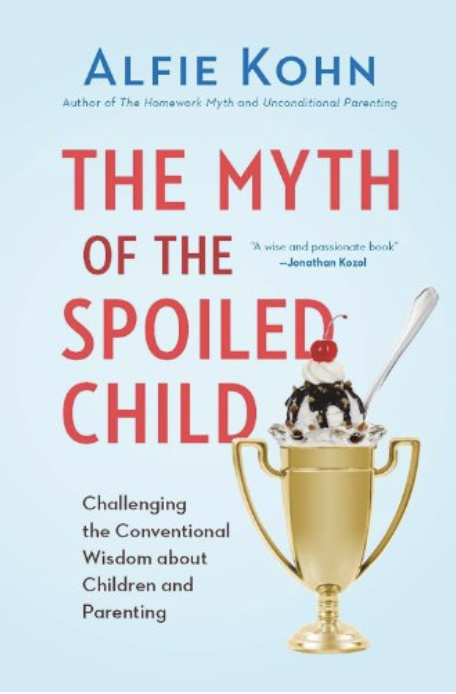It’s the kid who wants an extra piece of cake. Or the one who questions the rules of a particular game. Oftentimes, these kinds of kids are labeled as spoiled, but should they be? The idea of a spoiled child is one that plays out again and again in parenting, but what few fail to realize is that the idea of spoiled child might not actually be correct. Alfie Kohn, author of The Myth of the Spoiled Child, explains why calling kids spoiled might say more about the person saying it than the kids themselves — and why kids should be encouraged to be “reflective rebels”.
What was the impetus for writing The Myth of the Spoiled Child?
Part of what provoked me to write The Myth of the Spoiled Child is the fact that a lot of political progressives suddenly sound like they’re on Fox News when the conversation turns to children or parenting. A deeply conservative ideology has somehow become the conventional wisdom on these topics. That’s why just about every article in the popular press recycles these claims—kids need to experience more failure, millennials are narcissistic, kids are spared from competition (which is assumed to be a bad thing), parents are afraid to set limits, etc. Yet the writers of these articles present themselves as brave contrarians who are challenging the conventional wisdom!
So spoiled children are a myth?
Well, of course, some children fit the profile of “spoiled.” For that matter, we probably know kids who could be described by just about any adjective. But the claim that a lot of children are spoiled, or that this is truer today than in years past, is really not supported by good evidence. Sweeping statements about how kids or young adults are spoiled —or self-centered, entitled, narcissistic, selfish— are revealing mostly for what they tell us about the people who make these claims. And by the way, complaints about how “kids today” are the worst ever have been heard in every generation going back decades, if not centuries.
The Myth of the Spoiled Child isn’t really a how-to book for parents, but it does contain some broad ideas about how to raise children.
Sure. It says, first, that kids are more likely to flourish when we work with them than when we do things to them. And the corollary to that is that sneaky forms of control, using praise and guilt, for example, are still about “doing to” rather than “working with.”
Second, if we are concerned that kids will become self-absorbed or self-centered, the proper response isn’t to double-down on discipline to make them compliant; it’s to encourage them to resist whatever gets in the way of making everyone’s lives better, to question what they’re told. We should help them be reflective rebels. That stance may be challenging for us as parents, but it’s more likely to help our kids grow into good people, happy people, healthy people who make the world better than they found it.



